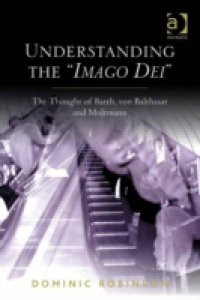| | | Understanding the 'Imago Dei' A introductory fragment is available | Language of a book: Английский Publisher: Gardners Books | |
|
| | As theologians across confessional divides try to say something significant about human dignity in our contemporary society, there is fresh interest in the ancient Christian doctrine that the human being is created in the 'imago Dei'. Theology is grounding responsibility for others and for the world around us in this common vision that the human being's infinite horizon lies in a divine calling and destiny. Robinson examines the 'imago Dei' debate through three giants of twentieth century theology - Karl Barth, Hans Urs von Balthasar, and Jrgen Moltmann. This is placed against a survey of the principle developments and distinctions relating to the doctrine in the history of Christian thought, which in itself will be valuable for all students of Theology. A fresh analysis of ecumenical contributions places the development of the doctrine in the context of the ongoing process of ecumenical dialogue on the dignity of the human person, with special reference to this theme in the first encyclical of Pope Benedict XVI, Deus Caritas Est.Whilst 'imago Dei' is the focus of this book, Robinson invites the reader to see its relevance to theology as a whole on a specifically ecumenical canvas, and relates directly to more general areas of theological anthropology, grace, salvation, and the relationship between God and the world. | | Поделиться: | ]]> :2]]> ]]> :2]]> ]]> :]]> ]]> :]]> ]]> :3]]> ]]> :3]]> ]]> :2]]> ]]> :2]]> ]]> :2]]> ]]> :2]]> ]]> :2]]> :2]]>  :0 ]]> :0 ]]> :3]]> :3]]> | | Мой статус книги: | | |
|
{"b":"420610","o":30} |

